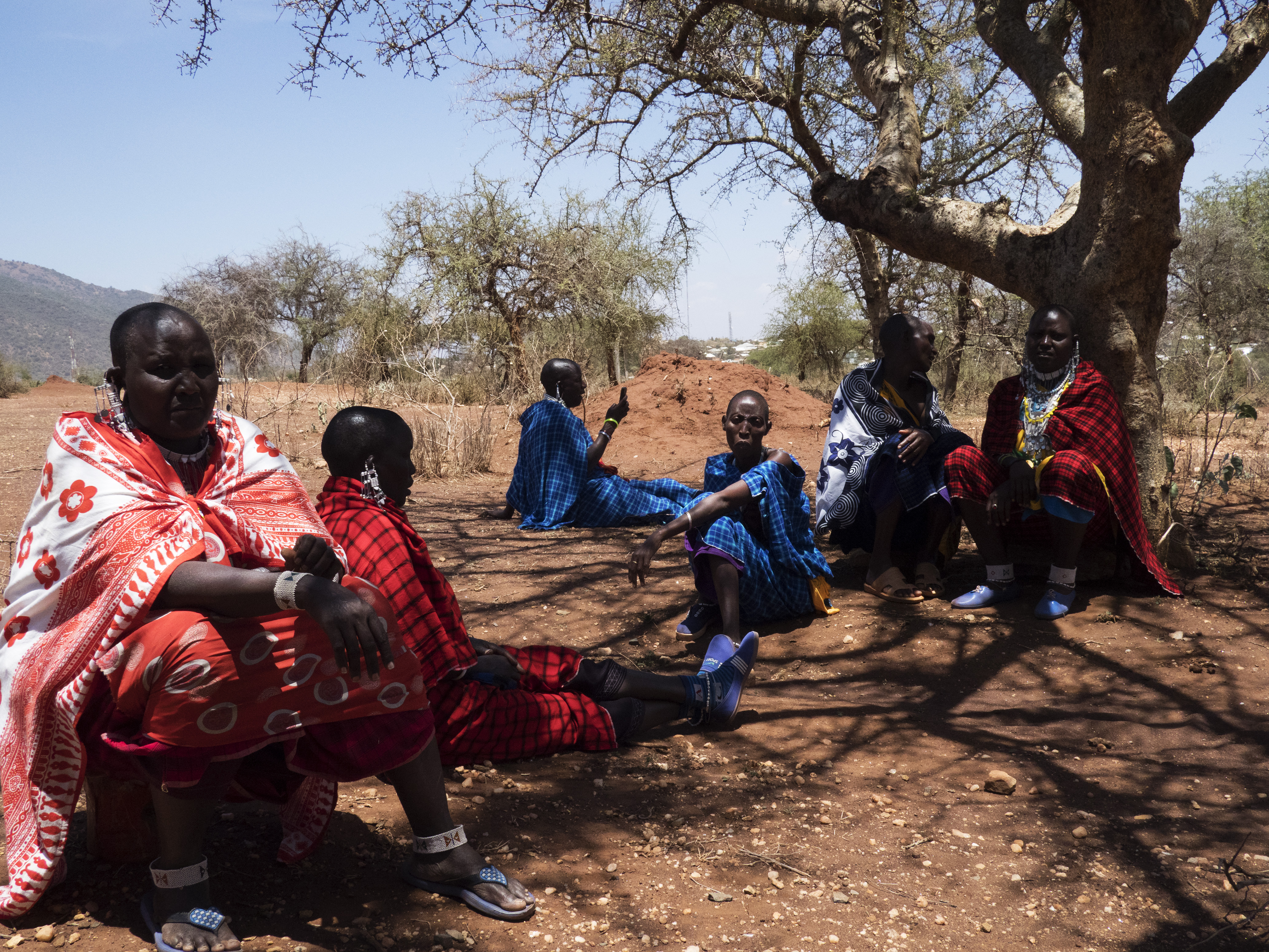
The Maasai, a semi-nomadic pastoralist people, have become accustomed to others laying claim to their ancestral territory. In recent years, the government has grabbed their land for game hunters and real-estate developers in the village of Loliondo. And now, ruby miners have moved into Longido district, several hours away.
Rubies have brought new commerce to Longido, but government evictions and the effects of climate change have forced the Maasai to seek new, often drought-ridden grazing routes for their sheep, goats, and cattle. They must travel farther with their flocks and herds and work longer hours than ever before. Many have reluctantly migrated to cities, some as far away as Dar es Salaam, a 12-hour drive southeast.
Seventy-five kilometers to the east, in Eworendeke, government development, rather than mining, is forcing some Maasai out. In 2012, locals say, a government official used bureaucratic sleight of hand to trick them out of two-thirds of their land in a case that the villagers mean to take to court.
In the face of a government that increasingly seems to want them gone, the Maasai of these areas are determined to keep tending their flocks. Photographer Thomas Dworzak documents their struggles.
This project is part of "Contested Lands," a collaboration between Pacific Standard, Magnum Photos, and the Pulitzer Center that sent six Magnum photographers to report on land rights issues from six countries around the globe. Visit our online curriculum for a lesson plan and full PDF of the magazine.




